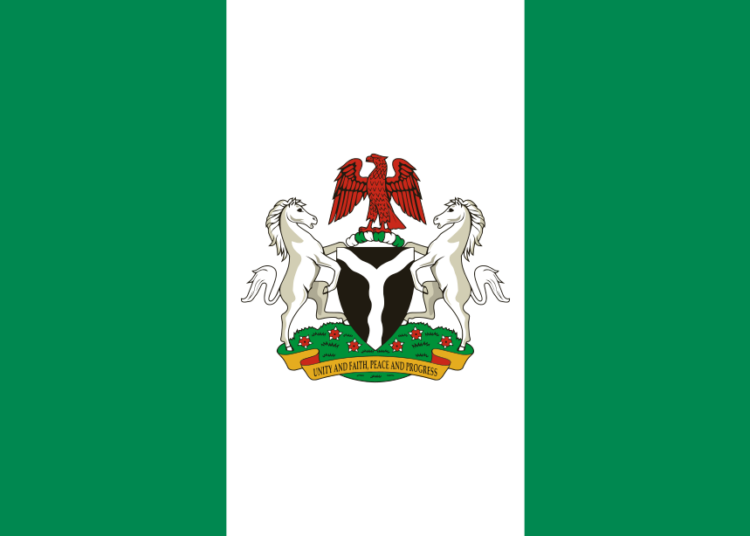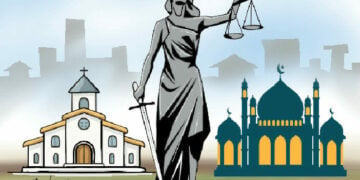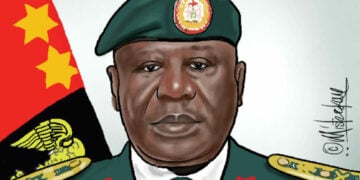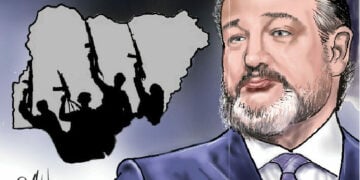On a Tuesday, 4th of June, 1996, around 3:05 pm something unbelievable happened that shook the core of the struggle for democracy in Nigeria. Kudirat Abiola was gunned down as her car slowed down around 7-Up Depot/Bus Stop in Ikeja – Lagos state. She was instantly killed along with her chauffeur and assistant. Many people who knew her opined that her death brought a beautiful, brilliant and bold life, which she was generally believed to have lived to an untimely end. With her death, a new chapter was opened in Nigeria’s political history, as the deceased became one of the prominent martyrs in the struggle for a truly democratic nation.
Before the outspoken wife of Chief M.K.O Abiola, widely adjudged to be the winner of the annulled 12 June 1993 presidential elections, she had been briefly detained for a few hours for allegedly possessing publications critical of the Nigerian military government headed a month earlier.In her fight for democracy, she gave several interviews on several occasions to foreign and local press in which she called for her husband’s release. She was often charged with various law suit, threatened and harassed. Despite this, she continued her outspoken campaign on behalf of her husband. Even in death, she remains a symbol of Nigeria’s struggle for democracy.

She is one of several Nigerians that paid the supreme price in their quest for a better, freer, and democratic Nigeria. Another of such martyrs was Gen. Shehu Musa Yar’Adua. After serving in the military and as the Third Republic beckoned, Yar’Adua and his group formed the People’s Front of Nigeria. Its members included current President Bola Tinubu, Babagana Kingibe, Atiku Abubakar, Magaji Abdullahi, Ango Abdullahi, Ahmadu Rufa’i, Rabiu Musa Kwankwaso, Tony Anenih, Chuba Okadigbo among others. The People’s Front later merged to form the Social Democratic Party (SDP).About two years after the 1993 elections, he alongside, Olusegun Obasanjo, Lawan Gwadabe and others were arrested on allegations of plotting a coup to overthrow the military regime. He was sentenced to death by a military tribunal in the same year after calling on the military government and the Provisional Ruling Council to re-establish civilian rule. The sentence was commuted to life in prison but he died in captivity on 8 December 1997.
Just five days after the country celebrated her independence on 1st October 1995, a prominent pro-democracy activist and business man was murdered at his Ikeja residence in Lagos state. He was Alfred Rewane, a major financier of the National Democratic Coalition (NADECO) and close associate of Obafemi Awolowo. In the 1990s, his residence was the venue of political meetings that led to the formation of NADECO which was quite vocal in its opposition to the military regime. He was one of the few Pro-Democracy activists who fought against the military but sadly, he paid the ultimate price.In President Bola Ahmed Tinubu’s inaugural democracy day speech to the nation, he particularly made mention of the three pro-democracy advocates. In the Presidents words, “they gave their yesterday for the liberty that is ours today.”
Reviewed to be celebrated annually from May, 29 to June 12 by former President Muhammadu Buhari in 2018, it is very important for President Tinubu to use his inaugural democracy day to honour the heroes who championed the struggle and made extra-ordinary sacrifices for the enthronement of democratic rule we currently enjoy.Recall that on June 12, thirty years ago, an estimated 14 million Nigerians; set aside ethnic, religious, class, and regional affiliations, to elect their president with the hope of ending several years of military dictatorship. In the Third Republic, there were only two political parties, the SDP and the National Republican Convention (NRC). The candidates were MKO Abiola of the SDP and Alhaji Bashir Tofa of the NRC. At the end of the election, MKO Abiola was said to have won over eight million votes winning in 19 states while his opponent, the NRC candidate Tofa received over six million votes and winning in 10 states. Of the over 14 million total votes cast; Abiola won almost 60 per cent of the total votes cast making him the winner of the election.Like the name of Fela’s 1977 album, June 12 and its victories no doubt, came with “Sorrow, Tears, and Blood.” The June 12 went above ethno-religious sentiments. The June 12 struggles shunned tribal, religious, gender and age differences. It was one that brought everyone together across Nigeria with a single purpose and in the spirit of actually effecting change.
The June 12 struggles was the realization on the need for everyone to get involved in politics and governance. It awoke the political consciousness of Nigerians and as President Tinubu puts it “was the equivalent of the battle against colonial rule by our founding fathers that resulted in the gaining of Nigeria’s independence in 1960.”Alongside, Kudirat Abiola, Alfred Rewane and Shehu Musa Yar’Adua, the likes of Nobel laureate, Prof Wole Soyinka, Chief Ayo Adebanjo, Frank Kokori, the current President, Bola Tinubu, Chief Ayo Opadokun, Dr Beko Ransome-Kuti, Gani Fawehinmi among many others were certainly a thorn in the flesh of the military. Many of them tasted brutality but refused to be cowed. Many were arrested and detained. They tenaciously fought the military notwithstanding the dehumanizing situations they suffered.
They spoke truth to power and queried the logic in the subversion of the people’s will by annulling the election. Several eminent and distinguished Nigerians joined forces to dare the military for its illogical action.“The labour of our heroes past shall never be in vain,” so goes the fifth stanza of our National Anthem. Indeed from our budding democratic journey since 1999, one can say out democracy is improving and the heroes that fought and lost their lives in the struggle for democracy has not been in vain. The February 2023 Presidential elections saw the election and subsequent swearing-in of the country’s fifth democratically elected president since 1999. In 2015, the elections saw something unprecedented happen.
An opposition candidate won the elections and there was a peaceful transition of power. The electoral process seems to be getting better with every election cycle especially with the introduction of technology to make the process more seamless and transparent. Indeed, June 12 should serve as a continuous reminder to Nigerians on the imperative of improving our democracy. There are still challenges to our democratic process such as political violence and incessant litigations. Increasing voter apathy as witnessed in the last elections is also a bane with many attributing it to the trust deficit between the people and their leaders. Something must be done to address this and ensure mass participation in elections.
Corruption is also a major challenge and must be tackled. The rule of law and conflict — triggered by political competition and communal, ethnic, religious or resource allocation rivalries — also poses a major threat to our democracy. Indeed, democracy has come to stay. Despite our imperfections, we can improve our democracy further by deepening democracy and sustaining democratic ideals. We can still get our act together to correct some of the issues and continue on that trajectory. Our democracy is a learning curve and a work in progress. Our leaders must continue to invest their time, energy, and resources to deepen democracy and sustain democratic ideals. The government should also renew its commitment to utilizing democracy as a vehicle for eliminating poverty and strife, so that at the end, peace, justice, security and economic development will be evident across the country.





